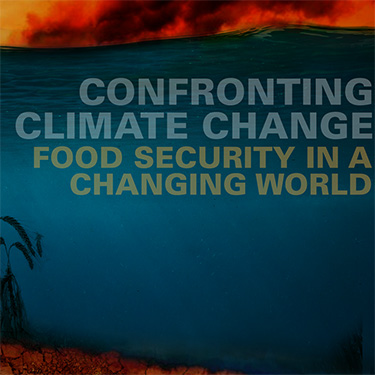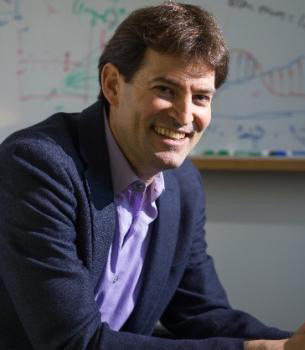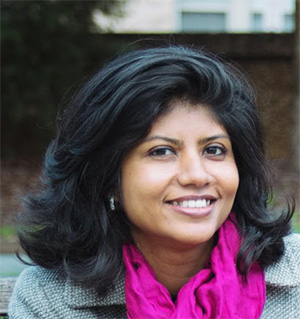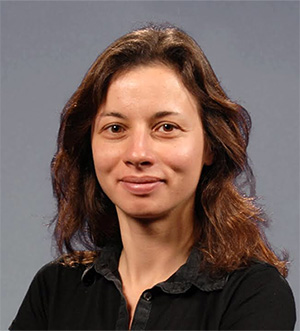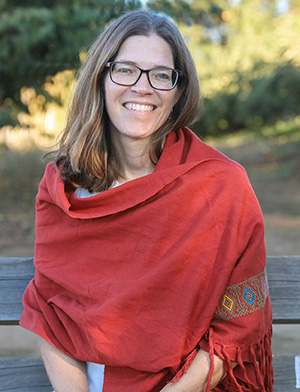The seventh annual Confronting Climate Change Conference at UC Santa Cruz will focus on Food Security in a Changing World, bringing together experts in climate science, food systems, and policy to discuss how we can adapt to feed a growing population during unprecedented changes in our planet’s climate, culture, and political landscape.
This free public event will be held virtually via Zoom on Wednesday and Thursday, April 28 and 29. Separate advance registrations are required to attend the April 28 Sustainability Film program and the April 29 Food Security program.
“Climate change is already affecting food security through rising temperatures, changing precipitation patterns, and increased frequency of extreme weather. Our food systems will have to adapt, and it will be important to consider the impacts on the most vulnerable populations as we plan for an uncertain future,” said Paul Koch, professor of Earth and planetary science and dean of the UCSC Division of Physical and Biological Sciences, which is cosponsoring the event.
On Wednesday, April 28, two short films from UCSC’s Social Documentation MFA program will be the focus of a panel discussion organized by the Arts Division. The films, which will be available for on-demand viewing before the event, focus broadly on sustainable food sources of traditional communities.
Day two of the conference (Thursday, April 29) features a panel discussion on food security with experts on climate change, food systems, and economics, moderated by Stacy Philpott, professor of environmental studies and director of the Center for Agroecology and Sustainable Food Systems (CASFS) at UC Santa Cruz.
“We have so much information now on how the current industrial agriculture model is not sustainable and is a contributing factor causing climate change, so I’m looking forward to having the panel discuss the potential solutions they see and the ways in which more sustainable agricultural practices can help us adapt to climate change and meet people’s needs for food security,” Philpott said. “It’s exciting to bring together a panel with such diverse areas of expertise and have them engage in conversation with one another.”
The panelists will be:
- Noah Diffenbaugh, the Kara J. Foundation Professor of Earth System Science and Kimmelman Family Senior Fellow at Stanford University. Diffenbaugh, who earned his Ph.D. in Earth sciences at UCSC in 2003, studies the climate system, including the processes by which climate change could impact agriculture, water resources, and human health.
- Aditi Sen, a lead policy advisor at Oxfam, a global organization that works to end the injustice of poverty. Sen’s work focuses on the nexus of climate change, food, and land use and addresses the drivers and impacts of climate change stemming from food systems, particularly on vulnerable communities across the world.
- Galina Hale, professor of economics at UC Santa Cruz. In addition to her research on international financial markets and financial stability, Hale has been looking at how the financial system can help solve problems related to climate risks and what economists can do to promote a more sustainable food system.
- Naya Jones, an assistant professor of sociology, critical geographer, and cultural worker at UC Santa Cruz. Jones studies Black geographies of community health and healing in North and Latin America. Her work on food sovereignty especially considers embodiment: she asks how food sovereignty and food access feel, and how embodied knowledge matters for collective thriving, policymaking, and movement-building. Her current book project focuses on African-American gardening and migration beyond the South.
After the discussion, there will be time for questions from the audience.
The following films will be discussed in the panel on Wednesday, April 28:
- El Cacao: An indigenous farmer in Panama confronts environmental and economic complexities of growing, harvesting, and selling cacao beans for the global chocolate market.
- Open Line: A Yup’ik fisherwoman teaches her son how to fish for salmon in Bristol Bay, Alaska, while an impassioned debate over a proposed open-pit copper mine is taking place.
Filmmakers Michelle Aguilar and Andrés Camacho will join in a panel discussion moderated by Rita Mehta, associate professor of ecology and evolutionary biology, and Daniel Costa, director of UCSC’s Institute of Marine Sciences. Nancy Chen, professor of anthropology, will provide introductory remarks.
In addition to the Division of Physical and Biological Sciences, the co-sponsors of this year's climate conference include the UC Santa Cruz academic divisions of the Arts, Graduate Studies, and Social Sciences. The film panel is presented in cooperation with UCSC's Seymour Marine Discovery Center.
